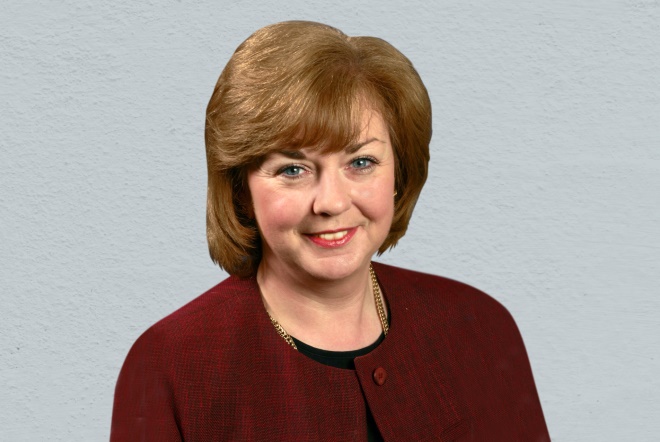
Shutterstock.com
On 19 February 2019, Hazel Smith from Health Education England (HEE) wrote to hospital chief pharmacists about cuts to funding for the training of hospital preregistration pharmacists for the second time in six weeks.
Smith, the national programme lead for HEE’s education funding reform programme, was writing to tell chief pharmacists that the cuts, first proposed on 4 January 2019, were being “paused” for a year to allow a better assessment of how the funding changes would affect pharmacy training and the future pharmacy workforce.
The initial letter, which said that all hospital trusts would receive just 75% of the cost of preregistration pharmacists’ salaries, was greeted with a mixture of confusion and anger by senior pharmacists. For many trusts in England, this would mean a cut of 25% to their preregistration training budget.
‘Short-sighted’ cuts
Gail Fleming, director of education and professional development at the Royal Pharmaceutical Society, described the proposals as “disappointing” and Nigel Ratcliffe, chair of the Pharmacy Schools Council, warned that would-be pharmacy students would want “clarification” on their future training.

Source: Nic Bunce / The Pharmaceutical Journal
Gail Fleming, director of education and professional development at the Royal Pharmaceutical Society, described the initial proposals as “disappointing”
The plans, which would end a variance in funding levels for hospital trust preregistration training, are now scheduled to be implemented in 2020/2021. Chief pharmacists have told The Pharmaceutical Journal that if the cuts go ahead, they would have to slash training places or cut other pharmacy services in their trusts.
Raliat Onatade, group chief pharmacist and clinical director for medicines optimisation at Barts Health NHS Trust, the largest NHS trust in England, says the cuts would reduce their budget by £100,000 and, if implemented, they would at least halve the number of preregistration training places on offer from the 13 it currently has.
“We hadn’t agreed exact numbers before the ‘pause’ decision was made as the final decision would be down to how much of the cost pressure my organisation would fund, but my intention was to reduce the cost pressure to a minimum, which could have been zero training places,” she says. “I would have started from a presumption of a 50% reduction.”

Source: Raliat Obnatade
Raliat Onatade, group chief pharmacist and clinical director for medicines optimisation at Barts Health NHS Trust, said the funding changes were “a short-sighted, poorly thought through decision”
Onatade says that owing to the high number of preregistration pharmacists at the trust, the cut would create a “cost pressure of over £100,000”, adding: “There is no way the trust can fund that so I would be looking at what would be a reasonable starting point.”
Overall, she believes the funding changes were “a short-sighted, poorly thought through decision”, with the consequences “easily predicted”.
She adds that these proposals should never have been considered without consulting NHS chief pharmacists, and argues that because hospital trusts provide most clinical training, any cut in the number of places would disproportionately affect the number of pharmacists able to take on clinical roles just as the ‘NHS Long Term Plan’ is asking for more pharmacists to fill just such roles.
Sue Ladds, chief pharmacist at University Hospital Southampton NHS FÂoundation Trust, says that if cuts go ahead she will have to cut other staff to fund the ten preregistration trainees her Trust provides placements for.
“I would regrettably reduce technician and/or support worker roles to fund the trainee places if necessary,” she says. “However, this would mean that the trainees between them would have to provide the equivalent contribution to service delivery.”
Ladds explains that this would mean trainees would spend 25% of their time delivering a pharmacy service and 75% of their time training. Currently, the trainees at her trust spend less than 10% of their time in service delivery.
“It could then be more difficult for them to achieve all of their competencies within the reduced time,” she says.
Ladds notes that smaller hospital pharmacy teams “will struggle to be as flÂexible as [they] can be to accommodate the same number of trainees with less funding — and virtually all acute hospitals are in financial deficit, so it will be very hard for them to make up the difference”.
One chief pharmacist, who works in a West Country trust but did not want to be identified, told
The Pharmaceutical Journal that a 25% cut to their salary training funding would put a £30,000 hole in their trust’s budget.
They said that while the trust only has three preregistration places, “it’s still going to be a significant challenge to find that additional money … and might affect how many we can support long term”.
Change of schedule
The change to preregistration funding was initially due to be introduced in September 2020, but just three days after Smith sent her first letter outlining the proposals, NHS England published the ‘NHS Long Term Plan’, which included an intention for thousands of pharmacists to take up newly created posts in primary care networks.
After news of the HEE proposals was broken by The Pharmaceutical Journal, Fleming pointed out that “less money for preregistration training in the NHS will directly impact on the number of pharmacists the NHS can train”.
The details in the long-term plan put this into even sharper focus. One of the more ‘pharmacy-friendly’ NHS reorganisations, it sets out several ambitions for the pharmacy profession over the next ten years – including a proposal to create primary care networks (PCNs) of GP practices covering 30,000–50,000 patients across England. Each one would be expected to employ a clinical pharmacist, with the Company Chemists’ Association estimating that this would equate to 6,000 posts.
Investing in pharmacy training
At the time of the initial announcement of the cuts, HEE said it would reinvest any savings made in the training of preÂregistration pharmacists. However, a document obtained by The Pharmaceutical Journal under the Freedom of IÂnformation Act states that this will only be a “time-limited” period, while the details are worked out, and that HEE originally was seeking much deeper cuts of 50% of salary support to preregistration training. But these were dropped due to the ‘NHS Long Term Plan’ demanding more clinical pharmacists and the short timescale to communicate the change.
Calum Pallister, director of finance at HEE, said it would work with “the profession to review the reinvestment of this funding which will support the frontline expansion of training for the pharmacy workforce, ensuring that it has the right skills and knowledge to provide patients in the NHS with the highest quality of care, directed by the ambitions in the ‘[NHS] Long Term Plan’”.
In the letter announcing the delay in implementing the cuts, Smith wrote that any final proposal must be something that “can be endorsed by the chief pharmacist as coherent with the broader professional vision”.
The NHS’s plan for pharmacy
Keith Ridge, the chief pharmaceutical officer for England, is currently chairing a pharmacy sub-group of a national workforce implementation steering group, which is looking at the effects of the long-term plan and expects to deliver an interim workforce plan by April 2019. The sub-group has been meeting weekly since February 2019.
The RPS, the General Pharmaceutical Council (GPhC), the British Pharmaceutical Students’ Association and chairs of regional hospital chief pharmacist networks were among those who met at a round table discussion event, hosted by HEE, to consider the future of funding preregistration places on 14 March 2019.
Among the topics discussed was the pharmacy service contribution that preregistration pharmacists make.
The proposals on a greater number of pharmacists working for newly created PCNs is likely to have a significant effect on pharmacist training, but how that will play out is currently unclear.
The anonymous chief pharmacist in the West Country trust says the current preregistration training system, which sees hospital trusts training people “for every other profession”, including GPs, clinical commissioning groups and mental health trusts, is “frustrating”.
They explain that although there have been moves to increase joint training posts between GPs and hospitals, “95% of the burden falls on acute hospitals”.
“There’s an imbalance where we’re expected to train significant numbers of pharmacists,” they add.
Alison Ewing, chief pharmacist at the Royal Liverpool and Broadgreen University Hospitals NHS Trust, says her trust has successfully bid for an extra preregistration placement in conjunction with a GP practice in 2020/2021.
“I believe that we need to create jobs … as the demand for new roles for pharmacists is increasing with the release of the ten-year NHS plan,” she says. “Most are in primary care but they need clinical expertise, which they will have obtained in secondary care.”

Source: Alison Ewing
Alison Ewing, chief pharmacist at the Royal Liverpool and Broadgreen University Hospitals NHS Trust, said “more student placements in hospitals would be a good first step” to meet demand for pharmacists created by the ‘NHS Long Term Plan’
But Ewing warned against “[draining] the hospitals for the new roles and that more student placements in hospitals would be a good first step”. She says her trust is unlikely to lose a training place even if the preregistration salary support changes go ahead — but her trust seems to be in the minority.
Another chief pharmacist who does not want to be named, but works at a South London trust which currently has four pharmacy student places, says that if the funding cuts are introduced, the trust “would potentially have to reduce our numbers, probably by one post”.
“It’s going to cause significant problems if we don’t have the numbers in the system to train because the demand, both within the hospital sector and in the new integrated care system, is for increasing [the] number of pharmacists so we do need to continue to train them,” they say.
They add that trusts across the capital will “be looking to see what us collectively as London would be doing”, explaining that chief pharmacists from all London hospital trusts have discussed the issue, but no formal response has been agreed.
Fleming told The Pharmaceutical Journal that HEE putting its plan to make cuts on hold “is as good as we could hope for at this time”.
“The fact that there is discussion is a good thing,” she said. “If they’d gone ahead with [the cuts] as was, without any doubt, we would have seen a reduction in hospital preregistration training places and also with the intentions to see hospital/general practice split, you’d expect they would decrease as well. But that said, now that this has been paused, you’d expect all of that should stop.”
She added that, while she “wouldn’t want to prejudge” the outcome of the talks, they will enable more long-term planning for situations that may arise, such as from the forthcoming GPhC plans for education training standards (see box).
“If that goes ahead and you move to a five-year degree then the need to have preregistration funded training as it is would stop ultimately anyway, so really you’d want to be thinking about what comes out of that and what are the long-term plans,” says Fleming.
Ensuring engagement
In a statement, HEE said: “HEE has paused implementation for a year to ensure comprehensive engagement with the NHS on the preregistration salary support for trainee pharmacists and alignment with the ‘NHS Long Term Plan’ goals.
“The output from the engagement, including a review of the impact assessment, will be considered by HEE before a final decision to implement is made. This will be subject to endorsement by chief pharmaceutical officer Keith Ridge at NHS England.”
GPhC plans for education and training standards
The General Pharmaceutical Council (GPhC) is currently consulting on a single set of education and training standards for pharmacists that will cover the five-year period of education and preregistration training.
The regulator says the proposals, which were put out for consultation in January 2019, will better prepare future pharmacists to provide a wider range of services in a greater variety of settings. They were first discussed at the regulator’s council meeting in November 2018, around two months before the ‘NHS Long Term Plan’ was published.
In launching the consultation, the GPhC said the proposed new standards are “heavily focused on clinical skills and on the importance of communicating effectively with people”, but it emphasised that they “still recognise the critical importance of science”.
The GPhC has said it will be for pharmacy schools and employers to decide when the 52 weeks of “practical training” — what was previously called preregistration — are carried out, within the five-year period of education.
“We would expect there to be different models depending on the overall design of each provider’s education and training curriculum,” the consultation document says.
“We will expect a more rigorous and structured approach to learning in practice with more regular and documented progress meetings.”
The consultation closes on 3 April 2019.
How do you think the proposed changes to preregistration salary support will affect the future of pharmacy training at your hospital trust, or more widely? To get in touch, contact news.editor@rpharms.com.


